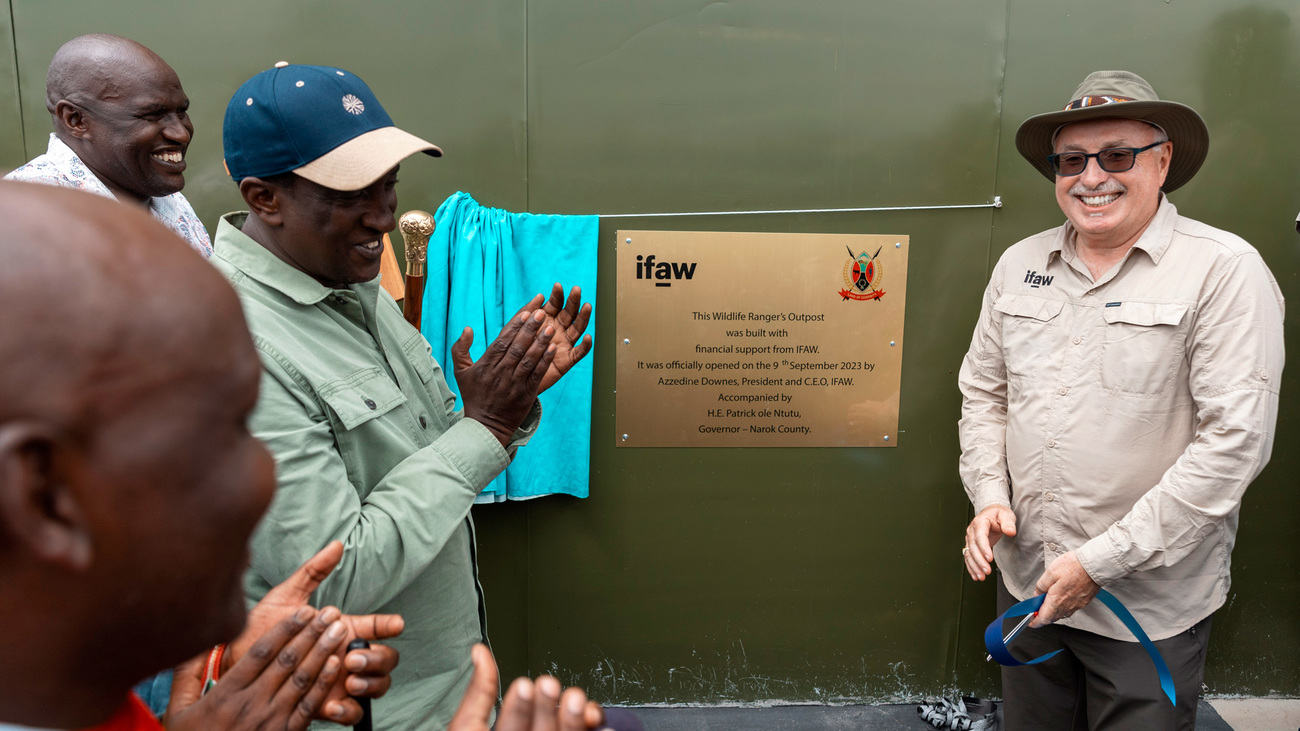Upgraded ranger base gives conservation in Kenya’s biodiversity hotspot a boost
Upgraded ranger base gives conservation in Kenya’s biodiversity hotspot a boost

(Masai Mara, Kenya – 10 September 2023) — Conservation efforts in the world-renowned Masai Mara National Reserve have received a boost, with the opening of an upgraded ranger base expected to enhance conservation efforts in the poaching-prone northwestern section of the park.
The renovation of the Mara Musiara ranger base—funded by IFAW—follows the first African Climate Summit held in Nairobi, Kenya, last week, which discussed and prioritised the continent’s role in protecting nature and biodiversity.
Wildlife rangers living at the camp at the Mara Musiara Gate—a public entry/exit point to Masai Mara National Reserve have already moved into the comfortable new quarters. The construction and upgrades follow a promise by IFAW CEO and President Azzedine Downes to repair the facilities following a visit to the Mara last year.
The base supports 17 wildlife rangers and ten civilian operations staff, significantly improving the welfare of rangers and staff living and working in previously rundown facilities built in the 1960s.
“The welfare of wildlife rangers is key to their success—rangers must be healthy and physically capable of enduring long days and nights. If they are not healthy, they cannot save the lives of wildlife,” said Downes, speaking at the commissioning of the base yesterday
“These men and women can spend weeks away from their homes, so ensuring they are comfortably housed and supported to do their jobs is an investment in the rangers themselves. Investing in rangers capacitates them to protect precious wildlife and the communities who live alongside wildlife,” said Downes.
Masai Mara National Reserve provides habitat to Kenya’s largest concentration of wildlife and is a premium global tourism destination. The Mara Musiara area has a high concentration of lions and cheetahs compared to other parts of the reserve, while poaching around Oloololo escarpment in its northwestern section is also more frequent than elsewhere in the 580 mile² (1,510 kilometre²) park, requiring more protection and conservation efforts.
Renovations to the new base include updated and more spacious ranger accommodation, including installing solar power. The housing is also more conducive to accommodating female rangers, making it possible for park management to assign female rangers to the Mara Musiara for the first time.
“This is a critical place where elephants have room to roam across the southern range lands, and the rangers and staff based at Musiara are responsible for security and mitigating human-wildlife conflict. As an important visitor entry point into the park, they also serve as the first welcome to tourists. For these reasons, IFAW is proud to be able to support the rangers who are on the front line of our conservation efforts,” said Downes.
In Kenya, IFAW works directly with 106 community rangers within community lands, where 1,500 elephants range freely from Amboseli National Park, crossing into the Tsavo National Parks to the South and Masai Mara National Reserve /Serengeti National Park to the North and South, respectively, where the Mara ecosystem is home to a significant population of about 3,570 individuals according to the 2017 census.
ENDS
Picture editors: High resolution professional images available on request.
Press Contacts:
Jacqueline Nyagah
International Relations Manager
m: +254 722 607640
e: jnyagah@ifaw.org
Christina Pretorius
Director, Communications Africa
m: +27 82 330 2558
e: cpretorius@ifaw.org
Related content
Our work can’t get done without you. Please give what you can to help animals thrive.